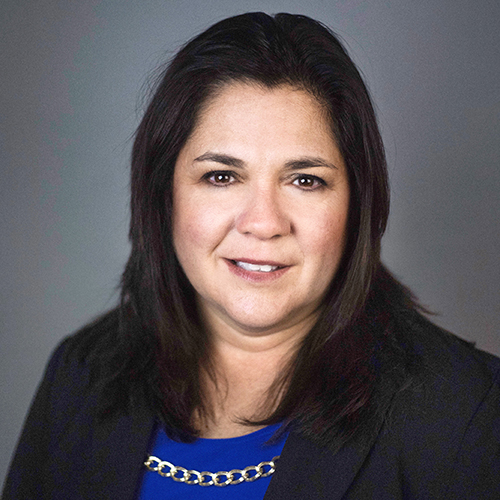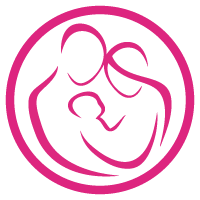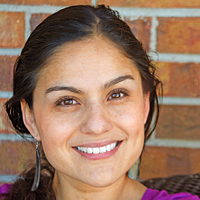 IBCLC Detailed Content Outline: Clinical Skills / Education and Communication Focused CERPs - Section VII B
IBCLC Detailed Content Outline: Clinical Skills / Education and Communication Focused CERPs - Section VII B
Access CERPs on Clinical Skills / Education and Communication for the IBCLC Detailed Content Outline recertification requirements. On-demand viewing of the latest Clinical Skills / Education and Communication focused IBCLC CERPs at your own pace.

Infant and Young Child Feeding in Emergencies: Background, Best Practice, and What You Can Do

Karleen Gribble (BRurSc, PhD) is an Adjunct Associate Professor in the School of Nursing and Midwifery at Western Sydney University.
Her interests include infant and young child feeding in emergencies, marketing of breastmilk substitutes, parenting and care of maltreated children, child-caregiver and caregiver-child attachment, adoption reform, and treatment of infants and young children within the child protection, immigration detention, and criminal justice systems.
She has published research on these subjects in peer-reviewed journals, provided media commentary, contributed to government enquiries, provided expert opinion for courts, and engaged in training of health professionals, social workers, and humanitarian workers on these subjects.
Karleen is an Australian Breastfeeding Association Community Educator and Breastfeeding Counsellor. Since 2010 she has been a member of the Infant and Young Child Feeding in Emergencies Core Group and has been at the forefront of the development of policy, training and research in the area of infant and young child feeding in emergencies.
Topic: Infant and Young Child Feeding in Emergencies: Background, Best Practice, and What You Can Do - [View Abstract]
Topic: Milk Sharing: Comparative Risks and Biomedical Ethics - [View Abstract]
In any emergency, infants and young children are particularly vulnerable. Providing appropriate aid is vital to ensure that children have the best chance of surviving. This presentation will describe why infants and young children are at increased risk during times of crisis and outline how aid can support, or sometimes undermine the health of infants and young children. Detail on instruments to support appropriate infant and young child feeding in emergencies will be provided, along with information to assist participants in advocating for appropriate infant and young child feeding in emergencies in their context.

View Details / Enroll

View Details / Enroll


Maureen Minchin is a medical historian whose 1970s experience of motherhood resulted in her second book, Food for Thought: a parent’s guide to food intolerance, recognized as ground breaking in its treatment of infant allergy. Her third book, Breastfeeding Matters, was declared a “milestone in the history of breastfeeding” by Prof JD Baum. For 35 years she has worked extensively in the area of infant nutrition, including for WHO, and UNICEF, and teaching health professionals in Australia and overseas. She was influential in the creation of IBLCE and BFHI, and a founding (and later Board) member of both ILCA and ALCA. Maureen has continued to work free of charge with families with both infant feeding and allergy problems. After a decade in eldercare, Maureen is getting back to writing, recently helping with the online infant feeding courses being developed by the UK’s University of York and the National HS-sponsored e-learning for health project. Her latest book, Milk Matters: Infant Feeding and Immune Disorder was published in 2015.
This presentation outlines a new understanding of why early infant feeding matters, generated by recent research into the microbiome and epigenetics as well as clinical and personal experience over decades. It focuses on allergy as an bilateral legacy which compounds through generations. Emphasis is on presenting symptoms and management in the breastfeeding family, although some infant formula issues are considered.. Maternal diet in pregnancy and lactation, and the effects of allergy on families, are all discussed.


Keira Sorrells is the mother of triplets born at 25 weeks, 5 days gestation. After starting a non-profit, the Zoe Rose Memorial Foundation in 2008, to offer support services to NICU and bereaved families, she became aware that a collective voice for parents of NICU babies was missing in the Maternal and Infant Health community. In response, she helped launch the Preemie Parent Alliance (PPA) in 2012, where she now serves as President. PPA is a national network of 35 NICU parent support organizations that collaborate to represent the needs and best interests of NICU families in a variety of ways. Ms. Sorrells believes a trusting parent-provider relationship is crucial to build a foundation of empowerment and support on which NICU families thrive well beyond discharge, no matter what the ultimate outcome may be.
It is human nature to "relate" to and take care of those we view as being most like us. However, choosing your patients is not an option. Studies have shown that parents who have an infant in the NICUf are at risk for developing PPD, PTSD, and other mental health concerns that may negatively impact their ability to bond with their babies. Further research tells us that a parent's ability to bond with their infant is critical to that child's overall development. Healthcare providers in the NICU must be equipped to uncover the details of a parent's experience that may not be apparent on first glance. A parent who has fallen victim to PTSD may exhibit many symptoms that can in their behavior as a response to their trauma that can then create many opportunities for misunderstanding, miscommunication, and ultimately an environment of discord. By sharing her experience of having micropreemie triplets in the NICU, Ms. Sorrells will lead the audience on an exploration of the psychosocial needs of NICU parents to uncover common barriers of communication and how to overcome those barriers to improve outcomes.

View Details / Enroll
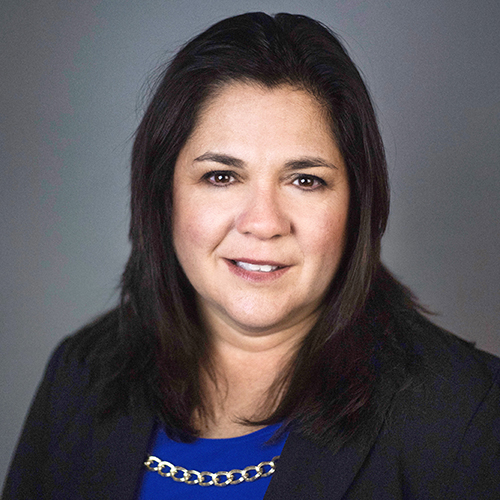

Annette Leary is a registered nurse with over 33 years of experience working in Maternal Child Health (pediatrics, postpartum, home health care and level 2 NICU). She became an IBCLC in 1995. She owns a private practice providing office, in home, and virtual visits at Orlando Lactation and Wellness. In 2022 she formed a collaborative company Baby B.L.I.S.S. : Central Florida Feeding Collaborative where she and her business partners help families prenatally, antepartum and post partum navigate the growth, development and feeding journey of their children. She began her craniosacral therapy training through the Upledger Institute in 2015, taking advanced maternal and pediatric specialty classes. Annette has found great improvement incorporating craniosacral therapy techniques with lactation consulting. Helping Families Latch onto Parenting has always been her mantra.
Topic: Where to Start: Creating a Lactation Care Plan for Complex Breastfeeding Cases - [View Abstract]
Lactation support may be time-limited when caring for multiple families with varying degrees of complexity and needs. Prioritizing between parents and within the individual cases, employing critical thinking skills, and identifying the chest/breastfeeding family’s needs is essential to efficient workflow. Competing priorities can be stressful and draining. Mindfulness empowers those providing care the clarity to prioritize needs and increase satisfaction for both family and lactation support team.
The presentation will consist of actual lactation scenarios varying in complexity and diverse work environments. Participants will interact via the chat box to triage cases, rank interventions and create a collaborative discipline list. We will end with a brief mindful activity.

View Details / Enroll
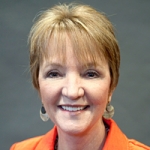
Interdisciplinary Neuroprotective Practice Standards and Perinatal Mental Health in the NICU

Dr. Craig lives in metro Atlanta, GA., is an Associate Professor and the Department Chair of Brenau University’s School of Occupational Therapy program. She has been practicing for 35 years, received her degree in OT at the Medical College of Georgia, her MBA from the University of Alaska-Fairbanks, and her PhD in Infant and Childhood Disorders with emphasis in Mental Health and Developmental Disabilities from Fielding Graduate University. Jenene currently serves as the Director of Education for National Association of Neonatal Therapists (NANT). She is also on the executive committee of the Board of Directors for the National Perinatal Association. In addition to consulting with several local NICUs, Jenene works PRN at a regional Level III NICU. She serves as a national speaker for the care of premature infants and families embattled in the stressful environment of the NICU. Jenene’s personal passion is to support multidisciplinary work in the NICU with a focus on parent-infant outcomes.
Hospitalization of a baby in a Neonatal Intensive Care Unit (NICU) has been described as a traumatic experience for both parents and baby leading to higher rates of postpartum depression and posttraumatic stress disorder in parents and to adverse developmental, cognitive and behavioral outcomes in their infants. The focus of care in the NICU has been broadening and evolving to emphasize the importance of supporting the family-infant relationship, since ultimately, the well-being of the family affects the well-being of the baby. Research documents that NICU parents both desire and benefit from psychosocial support from NICU staff, yet many staff, including neonatologists and neonatal nurses, do not feel they have adequate skills to support these needs. NICU staff need knowledge and tools beyond what typical healthcare education provides. Interdisciplinary recommendations for work toward best practice around psychosocial support of infants/parents and staff are presented.

It Takes a Village: Understanding the Role of and Integrating Extended Family in the 4th Trimester.

Rue Khosa, AKA The Boob Boss, is the owner/founder of The Perfect Push, a lactation and parenting wellness clinic in downtown Redmond. She is a board certified family nurse practitioner, lactation consultant and a THRIVE parenting educator. Rue was born and raised Zimbabwe, where family plays a critical role in supporting expectant and new parents. This type of communal caring, called “kugarira”, helps families prepare for a new baby both emotionally and physically and guides them through the often challenging newborn period. Rue created The Perfect Push to bring that experience to Seattle. Rue began her women’s health career as a labor and delivery nurse over 10 years ago, at Washington Hospital Centre in DC. She received her graduate degree from Georgetown University, and her undergraduate degree from the University of Maryland, Baltimore. Prior to opening her private practice, Rue was a Teaching Associate in the Department of Family Medicine at the University of Washington’s School of Medicine and an Adjunct Clinical Faculty at Northwest University Buntain School of Nursing. In July 2019, Rue was commissioned by the Mayor to the City of Redmond’s Human Services Commission. In February 2020, Rue was invited to join Washington State Hospital Association's Safe Delivery Roadmap Commission. She sits on their Birth Equity task force working on program development. She also sits on the board of No More Under, a non profit organization committed to drowning prevention and awareness. Outside of redefining the childbirth and parenting experience, Rue is a mother of two young boys with a third on the way. She lives in Redmond, WA with her husband, mother and boys.
American culture values self-sufficiency and celebrates self-sacrifice in the name of success. The idea of community and communal living is fast becoming a thing of the past. Children graduate, go off to college, start careers and families seldom looking back. Moving back home or moving back to one’s old neighborhood is now unheard of. The result has been the rise of the nuclear family and the fall of the generational knowledge that supported breastfeeding and identified new moms at risk of perinatal mood and anxiety disorders.
This talk will explore the importance of restoring and improving community and peer breastfeeding support and identifying barriers to success. Lactation providers will learn how to identify importance and the role extended family and how to include them without violating our patients privacy. Attendees will gain insight on health disparities and the historical significance of breastfeeding in communities of colors. Last but not least, the talk will highlight the importance of providing culturally sensitive and appropriate care.

View Details / Enroll

View Details / Enroll
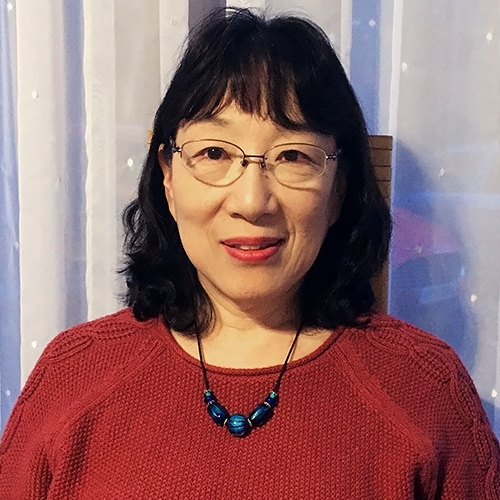
Lactation Education as Advocacy: Increasing Knowledge Among Physicians

Tomoko Seo is a pediatrician and IBCLC in Japan, working in a private clinic with colleagues including IBCLCs who practice's general pediatrics and breastfeeding medicine. She became certified as an IBCLC in 1999 and recertified in 2004, 2009, 2014 and 2019. She is a member of the Japanese Association of Lactation Consultants (JALC) since 1999, when it was founded. JALC has been holding conferences several times a year, including the “Annual Breastfeeding Seminar for Physicians” since 2005 to provide breastfeeding education to physicians and improve breastfeeding support among physicians. Tomko has been a member of the Academy of Breastfeeding Medicine (ABM) since 1999. She is also an active member of the International, Protocol, Education, Conference, Membership Committees of ABM.
Breastfeeding facilitates good health in infants and mothers, and for all humans throughout life. Medical professionals should be advocates for breastfeeding, and physicians could be one of the most influential advocates. However, many medical students, residents and physicians have very limited opportunities to learn about breastfeeding and human lactation during their medical education.
From another point of view, breastfeeding is a private experience as well as a scientific matter. If a physician or a partner successfully breastfeeds, she/he may become a more effective advocate for breastfeeding. So, it is imperative to provide medical students, residents, and young physicians with education about breastfeeding and to enable them to experience successful breastfeeding personally, in order for them to promote and support breastfeeding among their patients.
The Academy of Breastfeeding Medicine is an international organization of physicians who protect, promote, and support breastfeeding, and one of its goals is to develop and disseminate the standard for physician education around breastfeeding and human lactation. ABM has developed protocols and statements for health care providers to utilize for breastfeeding management.
The WHO/UNICEF revised Ten Steps to Successful Breastfeeding in 2018, includes in Step2 “Ensure that staff have sufficient knowledge, competence and skills to support breastfeeding”. This included physician education. There are many ways to educate physicians, and ABM materials could be one option.

View Details / Enroll
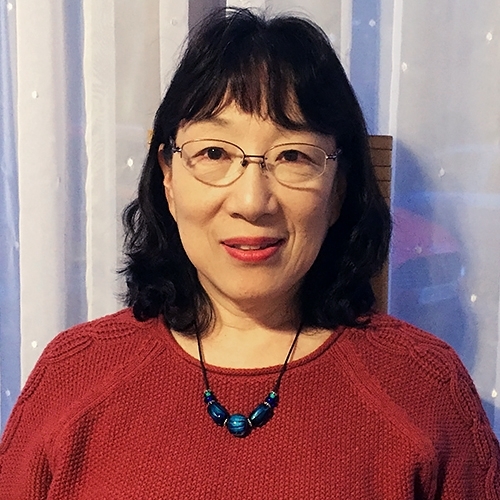
View Details / Enroll
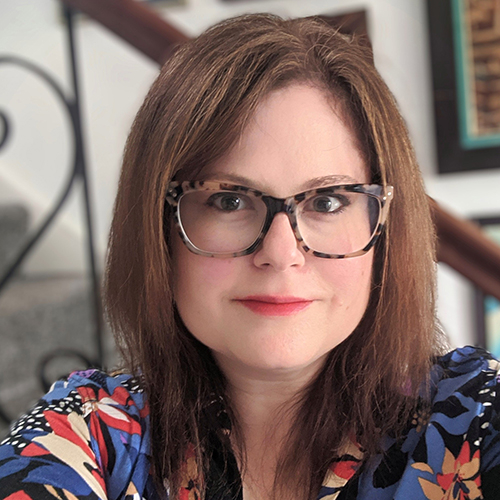
Lactation Education Outside the Box: Innovative Teaching Strategies to Engage Your Audience

Tamara Drenttel Brand holds an MA in Near Eastern Studies from the University of Arizona and a Master’s in Public Health (MPH) from the American University of Beirut. She spent 10 years in the Middle East, where she worked as a public health practitioner, infant and maternal health consultant and an IBCLC. She has supported breastfeeding dyads from all over the world both in private practice and as a volunteer. In 2011, she founded and still actively facilitates “Mama 2 Mama Beirut Breastfeeding Support,” the largest breastfeeding peer support network in the Middle East (currently at 25k+ members). Additionally, she founded Galactablog, a professional group for lactation specialists and those aspiring-to-be (currently at 4.7k+ members) and has authored several articles for La Leche League’s monthly leader publications in both the Middle East and Ireland.
She is currently an international speaker on the topics dealing with breastfeeding in the Middle East, innovative lactation teaching strategies, working in resource-scarce settings, providing culturally sensitive lactation support, developing and implementing peer counselor training programs, mast cell disease and other related topics. Due to her own chronic health conditions, she has a special interest in educating others about mast cell disease and supporting those with chronic illnesses. She currently resides in a seaside village in Ireland with her family.
Topic: Contextualizing Breastfeeding in Lebanon - [View Abstract]
Topic: Lactation Education Outside the Box: Innovative Teaching Strategies to Engage Your Audience - [View Abstract]
Topic: Mast Cell Diseases and Lactation Care in the Post-Covid Era - [View Abstract]
Topic: Providing Culturally Sensitive Support for Breastfeeding Muslim Families - [View Abstract]
Topic: Reflections on a Breastfeeding Peer Counselor Program in Lebanon: Lessons Learned and Looking Forward - [View Abstract]
Are you a lactation professional or health care provider looking for ways to engage your audience? Whether your audience is breastfeeding families, parents-to-be, peer counselors, volunteers, health care professionals or lactation specialists, then this presentation is for you! In it, I will show how creative solutions can overcome a lack of resources or technology to provide mothers and families with engaging and effective breastfeeding support. This session will cover innovative and interactive educational strategies and activities that can be used to capture your audience’s attention and to encourage them to retain vital information and strategies to help them breastfeed.
These concepts are practical and applicable to all types of settings, including but not limited to: breastfeeding support groups, lectures and presentations, training sessions, webinars, seminars and one-on-one lactation consultations. Moreover, they are easily modifiable to fit the needs of different populations and cultures. As many lactation professionals work in low-income communities or resource-poor settings that frequently lack many of the latest gadgets and expensive lactation aids, this presentation will offer demonstrations and tutorials of Do-It-Yourself (DIY) options that can ensure that breastfeeding mothers and families get the best support possible, even when resources are scarce.


Catherine Watson Genna BS, IBCLC is an International Board Certified Lactation Consultant in private practice in New York City. Certified in 1992, Catherine is particularly interested in helping moms and babies breastfeed when they have medical challenges and is an active clinical mentor. She speaks to healthcare professionals around the world on assisting breastfeeding babies with anatomical, genetic or neurological problems. Her presentations and her writing are enriched by her clinical photographs and videos. Catherine collaborates with Columbia University and Tel Aviv University Departments of Biomedical Engineering on research projects investigating the biomechanics of the lactating nipple and various aspects of sucking and swallowing in breastfeeding infants. She is the author of Selecting and Using Breastfeeding Tools: Improving Care and Outcomes (Praeclarus Press 2009) and Supporting Sucking Skills in Breastfeeding Infants (Jones and Bartlett Learning 2008, 2013, 2017) as well as professional journal articles and chapters in the Core Curriculum for Lactation Consultant Practice and Breastfeeding and Human Lactation. Catherine served as Associate Editor of the United States Lactation Consultant Association’s official journal Clinical Lactation for its first seven years.
Topic: Breastfeeding Strategies for Tongue-tied Infants - [View Abstract]
Topic: Critical Assessment of Apparent Tongue-Tie - [View Abstract]
Topic: Introduction to Cervical Auscultation - [View Abstract]
Topic: Lactation Support for Infant Biomedical Challenges - [View Abstract]
Topic: Organization of tongue movements before and after frenotomy for posterior tongue-tie: an Ultrasound analysis - [View Abstract]
Topic: Positioning and Latch for Breastfeeding - [View Abstract]
Topic: Ultrasound Analysis of Sucking: Tongue-Tie and Confounders - [View Abstract]
Topic: Using Breastfeeding Supplementers - [View Abstract]
Infants with biologically based sucking problems can often breastfeed with specific lactation management and supportive techniques. This presentation provides an overview of some common medical problems that cause feeding difficulty and strategies that can help an infant with suboptimal sucking skills to feed more normally.

Leadership Skills in Lactation: Make Extraordinary Things Happen

Paulina is the mother of three multicultural Latino children and Project Director for Lifespan Local. Paulina earned her BS in Psychology from the Pennsylvania State University, a MS in Organizational leadership from the University of Denver and is completing her PhD in Health and Behavioral Sciences at the University of Colorado - Denver. Paulina has over 18 years of experience working with families with young children. As a Maternal Child Health specialist for Jefferson County Public Health, she developed a NICU follow-up home visitation program and the pediatric emergency preparedness plan, co-founded and coordinated the Conectando Network (former Adelante Jeffco), established community navigation and lactation support groups focused on the Latino Spanish speaking community, and lead other initiatives to support leadership and partnerships among communities and organizations. During the COVID-19 pandemic, she managed the new program Whole Community Inclusion to ensure the pandemic response and recovery implementation included health equity practices that recognize the needs and the strengths of priority populations in the county. Her areas of current work include promoting perinatal and infant mental health along the continuum of care; building community capacity to navigate health and education systems; facilitating organizational change to embrace linguistic and culturally responsive practices; and establishing community-placed participatory programs to strengthen communities. She likes to be with people, learn from and with others, and connect passions for meaningful work.
Topic: From the NICU to the home: mother’s experiences - [View Abstract]
Topic: Leadership Skills in Lactation: Make Extraordinary Things Happen - [View Abstract]
Topic: Liderazgo en Lactancia - Para Alcanzar Metas Extraordinarias - [View Abstract]
Topic: Nursing A Preemie, Perspectives For Lactation Supporters and Professionals - [View Abstract]
Many of us come to work in breastfeeding envisioning a world where mothers and babies can breastfeed without barriers; however, we quickly learn that breastfeeding challenges go beyond latching and positioning.
To effectively support a breastfeeding/chestfeeding family, we have to support the parents, the extended family, the primary care provider, the workplace culture, the childcare, and the community; in summary, supporting one dyad can be an intervention to the whole social system. Indeed, breastfeeding advocacy is about building systems and consistently leading cultural changes to more deeply reinforce human feeding as the norm.
Kouzes and Posner (2012) state: “if you want to have a significant impact on people, on organizations, and oncommunities, you’d be wise to invest in learning the behaviors that enable you to become the very best leader you can.” With that in mind, lactation consultants and lactation advocates would benefit by learning leadership behaviors and skills that will support their efforts towards cultural change, inspire shared visions, challenge processes, becoming strategic advisors, and leading from the inside out.
Lactation leaders would benefit by being able to align values and beliefs with actions and strategies to promote breastfeeding as part of whole community development and as a public health strategy. In that way, lactation has a presence in early childhood initiatives, maternal and infant health, mental health programs, and any health, social, educational intervention.
Want to normalize lactation? Join this interactive session and become the leader who can make extraordinary lactation things happen in your community.






